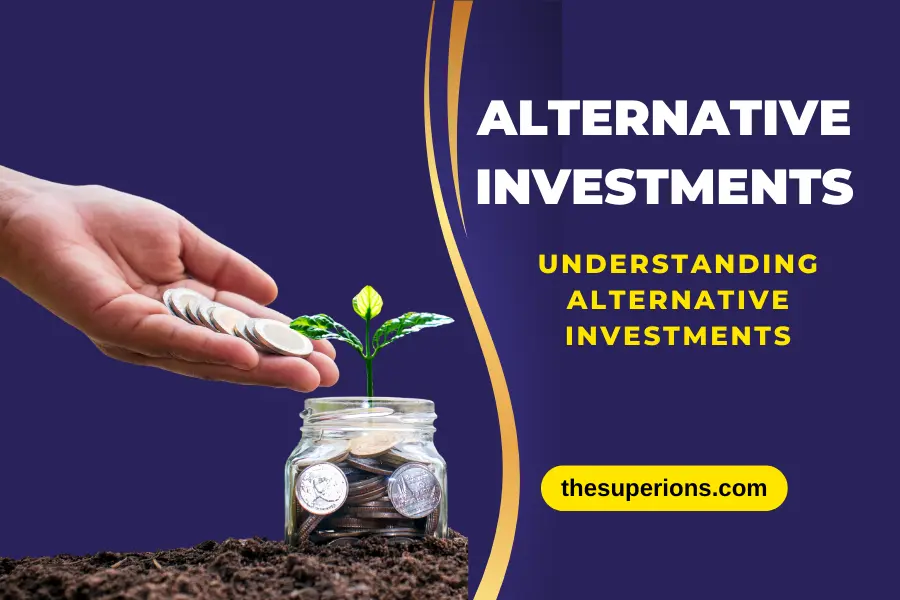How To Diversify Your Portfolio With Alternative Investments?
Investing is crucial to securing your financial future. Beyond the well-trodden path of stocks and bonds, alternative investment strategies present exciting avenues for diversifying your portfolio. This method balances your risk and can enhance your potential returns. This article delves into broadening your investment spectrum to include traditional and alternative markets.

Understanding Alternative Investments
Alternative investments are essential assets that fall outside the conventional categories of stocks, bonds, or cash. This broad category encompasses real estate, commodities, hedge funds, and private equity. The primary allure of diversifying your investments with these assets is to spread your risk across different types of investments. For instance, real estate can offer both rental income and the opportunity for property appreciation, providing a tangible asset that contrasts the stock market’s volatility. Commodities like gold or oil can safeguard against inflation, adding a layer of security to your portfolio.
People Also Read?
Diving deeper, it’s important to recognize the unique characteristics of each alternative investment. Hedge funds, for example, often employ advanced strategies, including leverage and derivatives, to achieve their investment goals, which can introduce a different risk profile. Private equity involves investing directly in companies, offering the potential for significant growth but requiring thorough analysis and patience.
Benefits of Diversifying Your Portfolio
Incorporating alternative investments into your portfolio can bring a multitude of benefits. A key advantage is their often low correlation with traditional stock markets. This means that your alternative investments may still perform well when the stock market faces a downturn, thus providing a buffer against losses. Additionally, alternative assets like real estate can generate consistent income through rent, which can be particularly appealing at low-interest rates, providing a steady cash flow independent of market swings.
People Also Read?
Another significant benefit is the potential for higher returns. While alternative investments come with their own risks, they also offer the chance for returns that exceed those of more traditional investments, particularly over the long term. This can be particularly attractive for investors looking to grow their wealth more aggressively.
With SoFi, “Access funds with growth potential that have the chance to generate higher returns compared to stocks and bonds.”
How to Start Investing in Alternatives
For those new to alternative investments, the journey can start with more accessible options. Real Estate Investment Trusts (REITs) and Exchange-Traded Funds (ETFs) focused on commodities offer a straightforward path to diversifying your portfolio with alternatives. These instruments allow investors to gain exposure to real estate or commodities without requiring large amounts of capital or direct management of physical assets.
Peer-to-peer lending platforms represent another avenue, offering the opportunity to invest in personal or business loans in exchange for interest payments. This can be an attractive option for investors looking for steady income while contributing to the growth of business or personal ventures.
Staying Informed and Flexible
Successful investment in alternative assets hinges on staying informed and adaptable. The investment landscape is ever-changing, with economic conditions and market dynamics fluctuating regularly. It is crucial to keep abreast of these changes and how they affect your investments. Flexibility in your investment strategy allows you to pivot as necessary, taking advantage of new opportunities or mitigating risks as they arise.
People Also Read?
Achieving a well-diversified portfolio through alternative investments requires a balance between exploring new opportunities and maintaining a cautious approach. By staying informed, seeking advice, and carefully considering each investment’s place in your overall strategy, you can navigate the complexities of alternative investments and work towards a more secure and prosperous financial future.





